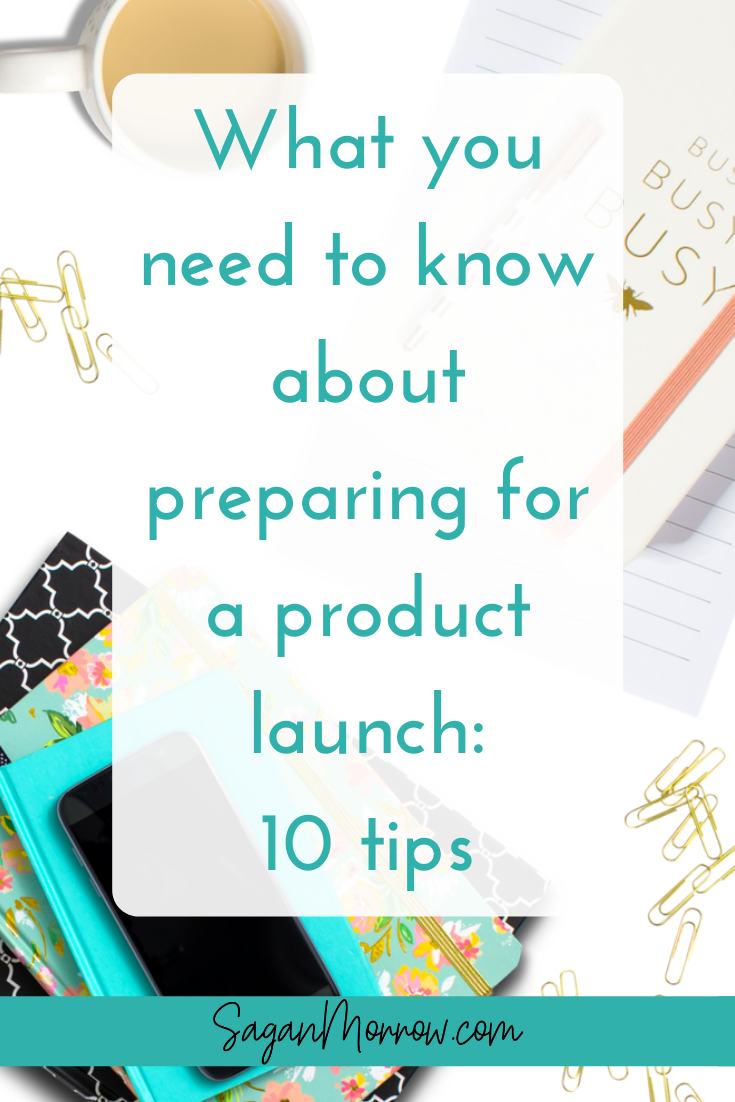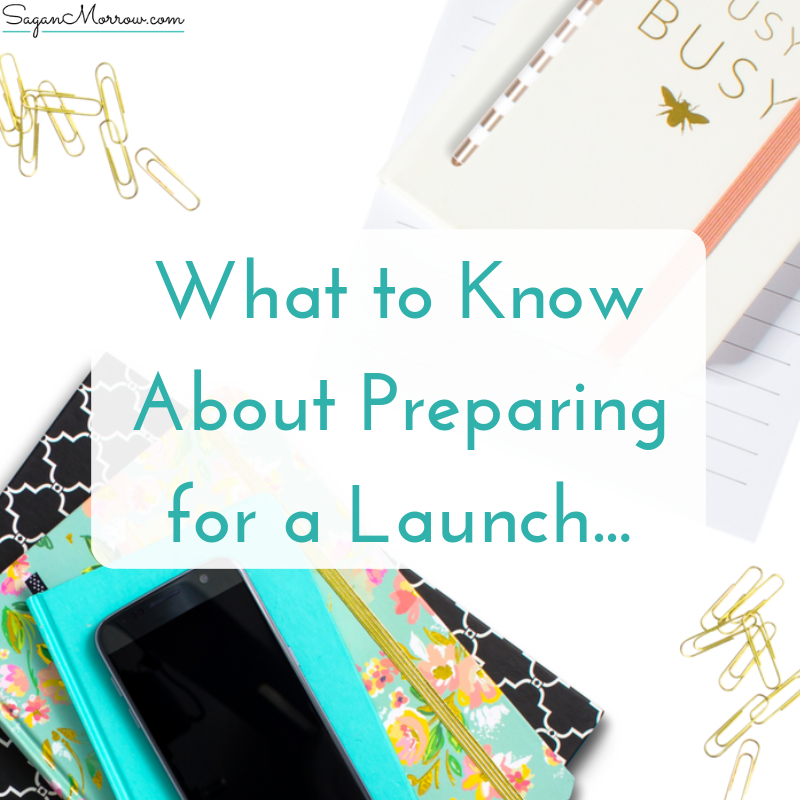In the next couple of months, I'm launching a brand-new book, featuring guests and the behind-the-scenes journey of Season 1 of the Candid Conversations small business podcast!
Here are a few of the launch tips I’ve picked up along the way and what I'm doing to preparing for the upcoming book launch…
What you need to know when preparing for a launch:
1) Who your ideal client/customer is
If you don’t know who you’re marketing to, then how can you go about finding them and marketing to them? WHO you want to connect with is fundamental to identifying HOW to go about connecting with those people!
You truly can’t do any effective marketing unless you know who exactly it is that can best benefit from your offering. I’m big on managing time effectively, so I don’t believe in wasting time just marketing into the abyss and hoping for the best. Instead, figure out the demographics that fit your ideal client so you can be strategic about your marketing plan for launching your next product/service.
Don’t worry---you don’t need to figure it all out on your own! Learn exactly how to identify your ideal client/customer.
2) What you will do to market your launch
For example, a couple key ways you might consider doing promotions include…
- Email marketing:
This is where you email people directly who are already on your email list. These people like you enough to have given you their email address, so they’re more of a “warm sell” on your product or service: they probably already know, like, and trust you and therefore will be that much more willing to purchase from you.
Learn more about whether you should have an email list for your freelance business.
By the way, you should definitely connect with the awesome people on your email list in meaningful ways in between launching to them. If they signed up for your list three months ago and haven’t heard a peep out of you, then they aren’t going to respond well to your sudden launch emails (and rightfully so). Here’s what you should send your email list on an ongoing basis.
- Word-of-mouth marketing:
Here, you’re inviting people who know, like, and trust you to help you with your marketing efforts. You could, for example, invite people on your email list to share the news with their followers. But you’ll get even better results if you connect with people one-on-one. Send a personalized email to those people who you have a relationship with and invite them to spread the word.
Tell them why this is important to you and be specific in what you’re hoping for (“I’d love for you to ReTweet my post or share this information with your friends!” rather than just “Look at this cool thing I’m doing that I thought you might be interested in!”). Ask your close friends, family, and colleagues to help you out too. If they’re in your circle, they’ll probably be more than happy to help support you in your launch.
- Launch team marketing:
This is a bit more effort but it can have big payoff. With this strategy, you’re inviting people to get your product/service for free or with special perks in exchange for them doing specific promotions and/or providing feedback/testimonials for your offer.
It’s important to note that unless you personally know everyone on your launch team, you’ll probably have at least half the people on your team who won’t follow through. So if you want to reach out to 10 people’s audiences or get 10 testimonials, then you’ll be better off trying to get 20 people on your launch team to ensure you actually meet your goal. (But again, if you personally know every single person on your launch team, then that will greatly increase your chance of them following through).
You should also provide them with copy they can use---for example, pre-written Tweets, Facebook posts, and emails, plus links and images. Provide them with key dates they should follow. Consider doing an extra giveaway for whichever team member makes the most sales so that they have extra incentive. You get the idea!
Of course, there are many other kinds of marketing too. You can focus on social media marketing, traditional forms of advertising (such as print media campaigns), or advertising on radio or podcasts, for a start.
The reason why I recommend email marketing, word-of-mouth marketing, and launch team marketing is because you have a bit more control over them and therefore more of a guarantee that they’ll actually work for you. Plus, because they rely on relationships you already have with people, these techniques will probably feel more in your comfort zone.
3) What your launch date will be
You need to know this BEFORE you outline your entire strategy, or else you’ll have a bunch of ideas with no timeline! Your launch date doesn’t have to be set in stone right away, but you should make a target date so that you can begin planning out your launch details.
Once you decide on which marketing tactics you’ll use and what other tools and tasks you need to accomplish your goals, you can reassess your launch date and announce it to the world.
4) What your goals are for your launch
Don’t forget to set launch goals! This is a handy way to measure your progress, keep yourself moving forward, and have something tangible to work toward.
Plus, when you outline your goals, you’ll be able to take a good hard look at all the marketing you’ll be doing and the price point of your product/service, and you’ll be able to see what kind of goal is realistic so that you aren’t disappointed with your results.
5) Where you need to be each week leading up to the launch
Let’s say your launch date is two months from now. In that case, I want you to break down where you want to be each week over the next eight weeks.
For example, perhaps you need to have a certain number of email subscribers by week 6, or you need to have your launch team organized and ready by week 4. Outline those target numbers or other key notes for each week leading up to your launch.
6) How to turn “where you need to be” into actionable tasks
This is one of my favourite steps. Here, you’ll looking at those goals/targets you just created for where you need to be each week, and you’re creating action steps to achieve those goals.
For example, if you need to have your launch team organized by week 4, then you should probably put the call out for a launch team by week 2, and make sure you know what you want from your launch team at that time. (See why you might need to rethink your initial launch date? All these tasks can add up quickly!)
7) What you need to purchase/outsource/delegate
Let’s say you’re going to appear on someone’s podcast. Do you ha
ve a high-quality microphone for that podcast interview?
Or, perhaps you want to have your launch graphics professionally designed, but you don’t have design skills yourself. In that case, you need to find a graphic designer and outsource to them.
Or, perhaps you have a virtual assistant and you need them to create all the launch copy (social media posts and emails) for the launch team.
The point is, you need to take some time to identify exactly what you need to purchase, outsource, and delegate early on so there are fewer surprises down the road (and so you can contact that graphic designer now, because they might not be able to get to your project for another couple weeks!).
8) What you’ll remove from your to-do list (e.g. maybe you’ll blog less to make more time for the launch)
Launch time is HECTIC. Now is the time to make life easier on yourself!
Take a good look at your typical to-do list and make a point of removing at least three medium-to-large items on it. For example, I’ve cut back considerably on blogging in general so as to make room for other tasks in our business. You might do the same, or perhaps you’ll remove something else entirely.
Whatever it is, figure out what you can “sacrifice” from your to-do list temporarily---which WON’T negatively affect your launch---so that you have more time and energy for the launch, and so that you don’t get burned out.
9) Why anyone would want your product/service
Start by free-writing: set a timer and just start writing down all the reasons why your product/service is awesome and how it can benefit your ideal customer/client. 
You might start out by writing something like, “They should buy it because it’s really cool” or “They should buy it because they like me,” and over the course of the next 5---20 minutes, you might get further along to “They should buy it because it will help them save time in their day” and “They should buy it because it will make them feel less overwhelmed” or “They should buy it because it will save them 10 hours a week, which they could instead spend doing XYZ.”
There are no “right” or “wrong” reasons here. The point is that you are just writing down all of the possible reasons, no matter how silly or insignificant they seem, so that you can get a better idea of what makes your product/service so valuable. You’ll then be able to use these ideas in your actual marketing copy to sell the product/service.
Who knows -- some of those silly or small reasons might actually be pretty funny, and you could incorporate them into your marketing materials for added humour!
10) How to drum up extra excitement for your launch
Could you offer your product/service at a special VIP rate at the beginning of the launch, or perhaps offer it in tandem with another product/service? Could you host a launch party for the product/service, or partner with someone else for a special limited time?
Brainstorm ways to get people excited so they take advantage of your produce/service now, rather than waiting for weeks before they eventually purchase.
BONUS: What additional marketing materials could support your launch
For example, you might want to create a video as part of your launch, or you might want to create some graphics to help it pop if you’re talking about it on social media. You might even want to put together a free chapter from your book if you’re launching a book, for example, and give that away to people so they can get an idea of whether or not they’ll want to read the full thing.
